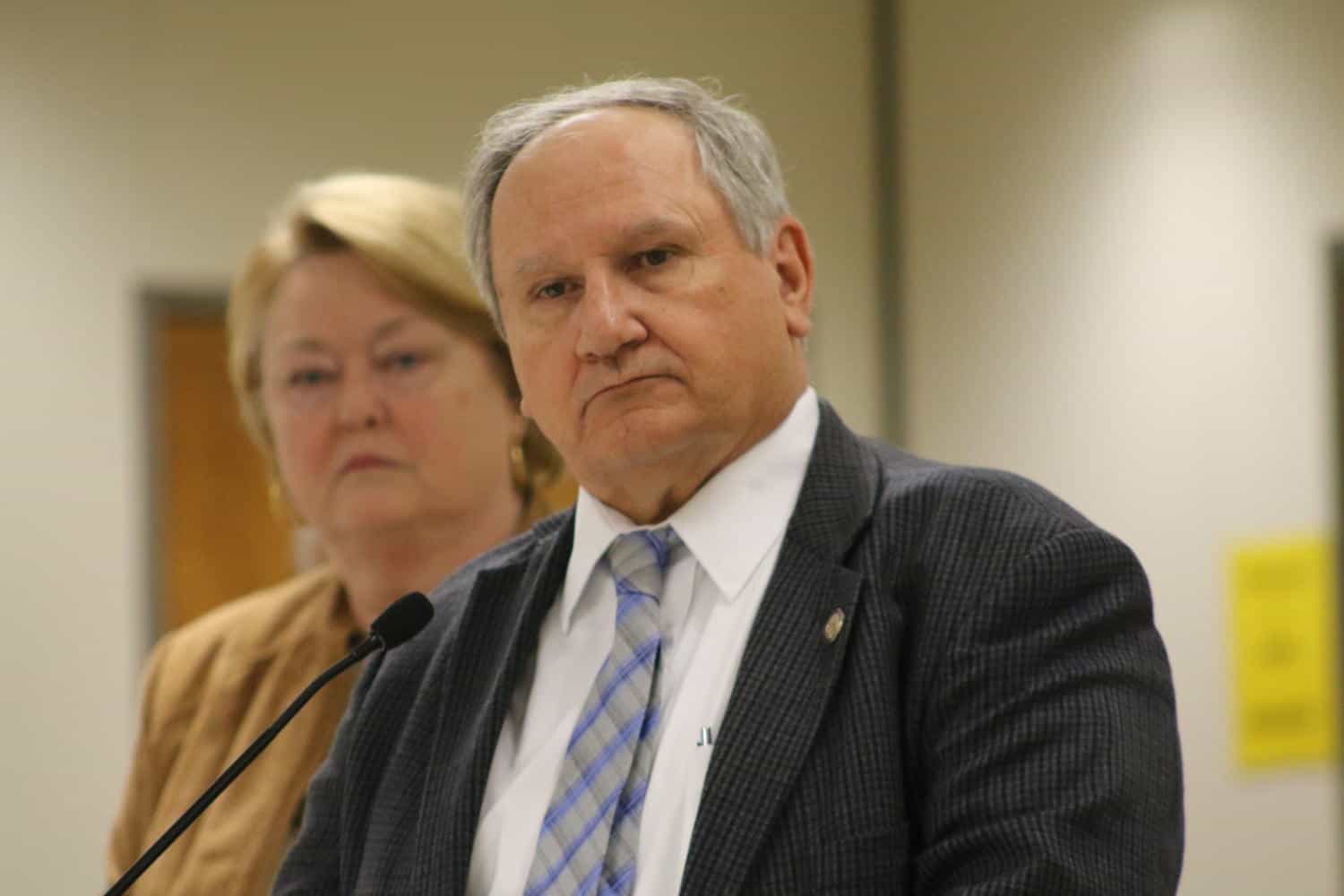The House K-12 education committee Monday gave favorable reports to several pieces of legislation that would change charter school laws around expansion and town ownership. One proposed measure gives priority enrollment to children of employees from a corporation that helps fund a charter school.
House Bill 800, which goes before the full House today, would allow corporations called “charter partners” to grant priority enrollment to its employees’ children.
To be a charter partner, the business has to donate property or the school building or help the school with renovations or technological resources. No more than 50 percent of the student population would be given priority in the charter school’s lottery. However, if there are more applicants, the bill would require their acceptance in a separate lottery.
Rep. John Bradford, R-Mecklenburg, explained that he sees the priority enrollment as an incentive for businesses to invest in charter schools and a “perk” for employees that’s no different than daily free meals or other benefits.
“Imagine the largest of company going out to the most rural part of North Carolina and they look around and they’re trying to find reasons for people to either move to that town or stay in that town,” Bradford said. “This creates a vehicle where a business, a corporation, can create a culture, an employee benefit, where they can have a school.”
Rep. Graig Meyer, D-Orange and Durham, tried to block this provision of the legislation, but his amendment failed.
“This provision really creates a new type of school that we haven’t had in North Carolina before,” Meyer said. “It creates a company school — a school where a company establishes a charter and blocks off 50 percent of the seats for children of those people who work there. It’s akin to private schools that already exist in the state that are on the campus of a company or are affiliated with the company.”
Meyer said he’s afraid this new type of school does not meet the public standards that charter schools are supposed to meet.
“To me this is just a step too far in moving away from the public aspect of public charter schools,” he said. “This is setting up something that feels proprietary in nature. It feels like the school is owned 50 percent by the company — and that’s not a free and freely available public school.”
Much of the debate around the charter-related bills came from a continued question on charter schools’ place in the state’s educational system.
Rep. Jimmy Dixon, R-Duplin and Wayne, noted this fundamental split in the committee and the legislature, which often falls along party lines.
“There is obviously a divide when we start talking about anything with charter schools,” Dixon said to the committee. “There’s some of us that do not believe that charter schools are a threat to the traditional public school situation.”
Dixon went on to say that he thinks charter schools, which are also public schools, should not receive the unfair scrutiny by some members of the legislature and media. He said these individuals think charter schools inherently take away from traditional public schools.
“… [T]hat [position] is that intrinsically, that there is a threat to the existing public school system imposed by anything that supports or lends itself to the availability or the possibility of charter schools being some type of alternative,” he said. “And I think that that is a false premise.”
One measure which saw the type of debate Dixon described was House Bill 779, a measure to allow charters to expand their enrollment by up to 30 percent in a year without having to go before the Charter School Advisory Board (CSAB) with a revised charter. The bill, which goes to the House floor Tuesday, would also give preferential enrollment both to students who attended a different charter school the previous year and to students who are in pre-k programs sponsored by the same charter school, among other changes.
Rep. Mark Brody, R-Anson and Union, presented the bill. Brody said its intent is to relieve charter school waitlists, many of which are larger than the schools’ populations.
Rep. Bobbie Richardson, D-Nash and Franklin, attempted to remove the part of the bill that would loosen expansion requirements. Richardson’s amendment, which failed, would have meant that charter schools would have to go before the CSAB and prove that they meet certain criteria before being able to expand by more than 20 percent that year.
“I think expanding beyond 20 percent, or up to 30 percent, … without looking at those criteria would not be fair to taxpayers, parents, or the students that are going to attend these schools,” Richardson said.
Brody said there are currently about 40,000 students in the state waiting to get into charter schools. At the Union County charter school where he serves as a board member, there are 340 students on a waitlist and only 285 students enrolled, he said. Although 100 percent expansion is not feasible, Brody said, charter schools need to be able to easily expand to “absorb some of these kids.”
“Parents are making the decision,” Brody said. “Parents are the true judges of how our education system works — they are making that decision on pulling their kids out of wherever they would’ve been assigned and going to charter schools.”
House Bill 514 would give two towns, Matthews and Mint Hill, the authority to run charter schools. The town’s governing bodies would take the place of a board of directors that normally oversees and operates a charter school.
Rep. William Brawley, R-Mecklenburg, said he would deny any amendments to add other towns or counties because he wants the pilot-like effort to focus on only the two for now. Under this bill, the residents of the two towns would be given preferential enrollment. He said the towns asked for the ability to apply for charters.
Richardson asked why the towns did not go back to establishing regular city school systems, saying she is concerned the change would be veering from the purpose of charter schools since certain individuals would be given preferential enrollment. Brawley responded that the school would be open to any student if it did not fill up with residents, adding that this is is an easier option for the towns rather than breaking off from Charlotte-Mecklenburg Schools (CMS).
“Rather than come in and say, ‘Let’s break it apart,’ what I’ve proposed to do here is allow the towns to establish additional educational opportunities within their town limits — accepting that a lot of people will stay in the public schools,” Brawley said.
Brawley said a separate bill is studying the possibility of separating the school systems.
Rep. Amos Quick, D-Guilford, said he did not see the need for more parental options since CMS has many existing magnet and charter schools.
“This seems to me to be a bit of overkill, and dramatic overkill, if the intent is just to provide options and choices,” Quick said.
Brawley said, from his personal experience, there needs to be more choice. Magnet school acceptance, he said, is confusing and difficult. And he said he asked for “a change in school revenue” for one of his four children to meet his special needs and was denied each time. At his current residence, Brawley said his kids have attended seven different schools.
“The idea here, really, is to put some schools and additional choices within the town’s control rather than you have to shop all over Mecklenburg County and drive 11 to 15 to 25 miles to get your kids into a school,” he said.
After receiving a favorable report from the committee, the bill now goes to the House’s state and local government II committee.



